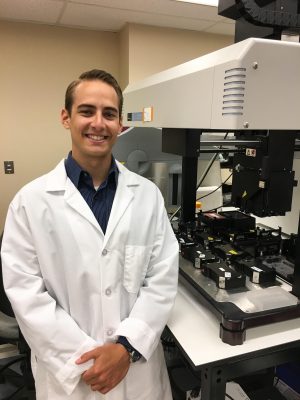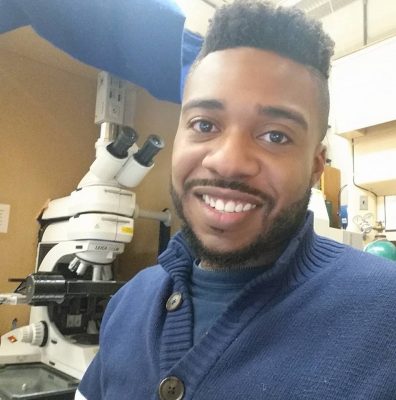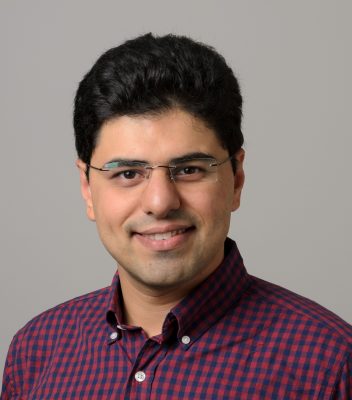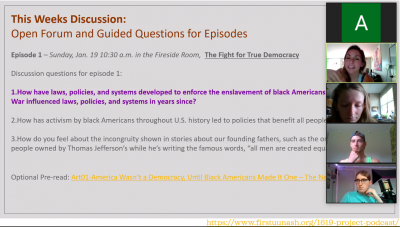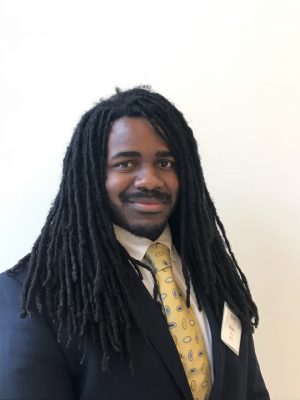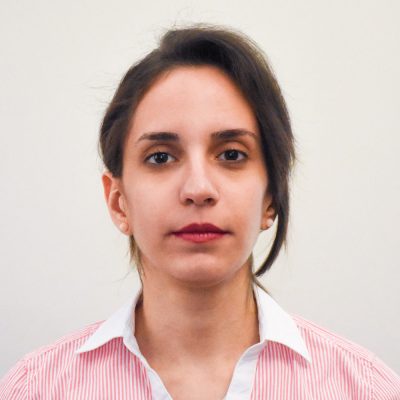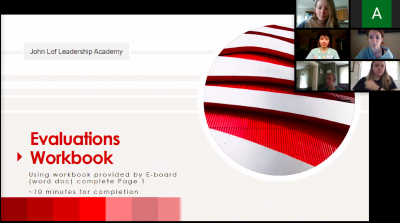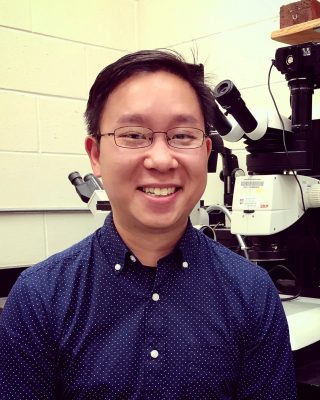The John Lof Leadership Academy will be led by an elected student council, and aims to:
- Develop leadership and professional skills
- Organize and facilitate social, academic, and professional activities that help Academy members develop these skills
- Promote and support the academic and future professional success of graduate students in SoE; and
- Engage communities inside and outside the School to promote, and provide mentoring and support where appropriate
New members are currently being inducted and must complete an application. Applications are reviewed by a committee and John Lof Leadership Academy advisors. Please click HERE for more information regarding the application process.
Video Transcript:
Mikayla Moody: Hi there, my name is Mikayla Moody, and I am a second year PhD student in biomedical engineering.
Randi Mendes:Hi, my name is Randi Mendes and I’m PhD student in Environmental Engineering. I was a part of the 2018 through 2020 cohort, where I was president. And I’m also founder of JLLA Leadership Academy.
Pierre Dens Fils: Hello, my name is Pierre Dens Fils, and I’m a rising 3rd year PhD student in the Civil Engineering Department, with a concentration in structural engineering.
Donyeil Hoy Jr.: My name is Donyeil Hoy Jr. I am a sixth year PhD candidate in the biomedical engineering department.
Gigi Fusco : Hi, my name is Gigi Fusco and I’m going into my second year as a PhD student and civil engineering. Hello, my name is Mohammed and I am a PhD student studying biomedical engineering.
Mohammed Albayati: Hello, my name is Mohammed Albayati and I’m sitting your PhD candidate mechanical engineering.
Erik Ammermann: Hi, my name is Erik Ammerman and this Fall 2020 semester I’ll be a second year PhD student in Chemical and Bimolecular Engineering
Mohammed Albayati: I believe that graduate school is not only about publishing papers or getting a high GPA. Before joining JLLA. It was important opportunity to develop my leadership skills, and thank you JLLA for giving me this opportunity.
Pierre: I decided to join John Lof because I’m interested in creating positive long lasting change in and around my community.
I’jaaz Muhammad: It also gave me the experience to actually practice, what is being taught in the academy. It gave me experience with leadership and critiques, and improved my leadership.
Randi Mendes: One of the reasons why I was so interested in creating John Lof Leadership Academy was because I wanted to allow forum for students to be able to develop leadership in the way that they wanted to be leaders. I didn’t want it to be a cookie cutter process, where we all had to look identical in order to be considered true leaders. I wanted to be able to allow each person to grow as an individual. And so, it was really important to me to continue that basis with the development of John Lof Leadership Academy and because of that I’ve been able to work with some amazing leaders in the field of engineering as well as learn a lot from them.
Erik Ammermann: So I initially join the John Lof Leadership Academy thinking it would be good to show leadership on my resume. I very quickly realized this organization is a lot more than that. Not only do I feel like I am actually developing real, tangible leadership skills through the different workshops throughout the year, but I am getting to do that with prominent members from the school of engineering- all the way up to the dean himself. As well as some of the best student leaders UConn has to offer.
Tori Danis: Being in John Lof this past year I’ve really enjoyed getting to know this group of students across UConn and collaborating with each other to develop our individual leadership styles, we engage in discussions and workshops to hear different perspectives on problems that we face as mentors such as needing to resolve conflict and inspire change in our community
Donyeil Hoy Jr.: It was an experience for me, particularly because I was able to learn how to put my own leadership style into words, as well as to apply my leadership style in different categories and learning techniques. However, the most meaningful experiences for me have actually come more recently, given the current climate of our society with Black Lives Matter and Xenophobic policies of the current governmental administration, as well as dealing with a global pandemic. I’ve got to see a lot of my peer leaders step up in many unique ways in order to challenge the systems that are affecting a lot of us at this current moment. And I got to participate in a lot of things as well, that have allowed me to put a lot of strategies up learn directly into use. Given the unfortunate circumstances.
Gigi Fusco: The most valuable thing that I’ve learned in JLLA so far is voicing my opinion for a really long time I was very quiet, and generally has really helped me realize that it’s important to speak up, and it’s given me the confidence to be able to do so.
And something that I’m looking forward to my second year is working on public speaking, because that’s something that I have a long way to go in and I really need to work on.
Mikayla Moody: Sometimes I feel like I have a hard time being myself when I have to give any sort of presentation, but one of the guests that were there, one of the people that were there to help us improve our public speaking, told us that you have to learn how to be yourself when your public speaking because it’ll make it more natural and it won’t make it as hard when you have to do it, and I’ve taken that to heart. From here on out, being more honest about myself in being more open, when I’m feeling nervous and how I want to say things, so that’s been very helpful. The JLLA experience has definitely been valuable to me and I’m excited for the opportunities that will come in this next year.
